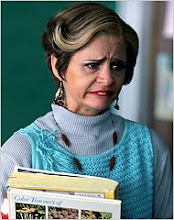Chaudry makes the argument that “we are asking the less fortunate to strive and work harder, we are deeply discounting our public responsibility for the children born into poor families and disadvantaged communities” because of politics on welfare reform. Chaudry writes that since the government stressed that work is the way to rise out of poverty, it has actually created a variety of obstacles. Among these obstacles is finding affordable child care. In Chaudry’s story of Annette and her son Aaron, Annette has much difficulty in finding quality and affordable child care for her infant son while she struggles to work two part-time jobs. In Chapter One of “Putting Children First”, Chaudry emphasizes the inconsistency with child care among the working poor and the flaws of subsidies for child care. Annette received child care subsidies from one of her employers, yet she still had to use some of her own money to compensate for the leftover amount. It is difficult for the working poor to find child care at an affordable price where their children will also be encouraged to learn. I think that this discounts our responsibility toward children born into poor families because they are provided with fewer advantages from the start of their lives.
The video clips support Chaudry’s argument because they also discuss the inconsistencies of child care among the working poor. For instance, in “Living with a Hole in your Pocket”, the people discuss the “viscous cycle” of living paycheck to paycheck and never really getting ahead. These working poor are not able to save money for their children’s education, or even afford health or life insurance. In the “Working Poor” video, various individuals describe the working poor as people who earn a wage but still do not earn enough money to subsist at a higher level. In “Poverty in America”, we learn that 37 million people are living below the poverty line. According to the government, the poverty line equals a family of four earning less than $20,614.00 but the cost breakdown of living provided in the video proves that it is essentially impossible for any family of four to live comfortably on this income. Professor Katherine Newman draws attention to the fact that the close to poverty poor people are often not even considered in policy making agendas. Many of the close to poverty poor have been able to rise above the poverty line through acquiring debt, yet they still can not often even afford health insurance.
While I feel that these are extremely serious issues that deserve attention, I am still hesitant to say that more federal or state aid is the answer. I think many factors come into play when considering these situations. I do not believe that people should have children if they do not have the means to support them. I think Annette should have given her baby up for adoption rather than raising him in an unhealthy environment. I do believe that mothers like Annette need to take personal responsibility for their actions and if you choose to bring a baby into the world that you cannot actually afford to take care of, than there are certain consequences you will obviously have to face, and extreme struggle is among those consequences. Planned Parenthood offers extremely cheap birth control and free condoms and I believe that if you are irresponsible enough to get pregnant by some deadbeat than you must realize that you are going to have to seriously work hard to provide for your children. I think it would be nice if everyone had healthcare so that children would not have to suffer due to the status and choices of their parents. I think it would be great if more companies had an incentive to provide free or extremely cheap child care to their employees. These children are born into situations that they cannot control and it is unfortunate that because their mothers have to work so hard to provide for them, that they are not given the same advantages of children in the middle and upper classes.
Subscribe to:
Post Comments (Atom)

No comments:
Post a Comment